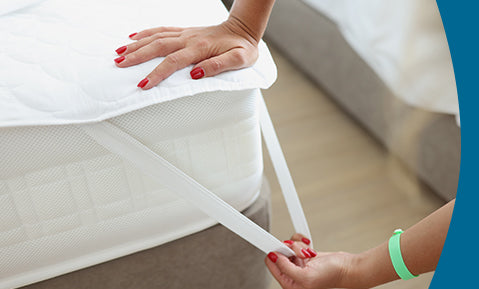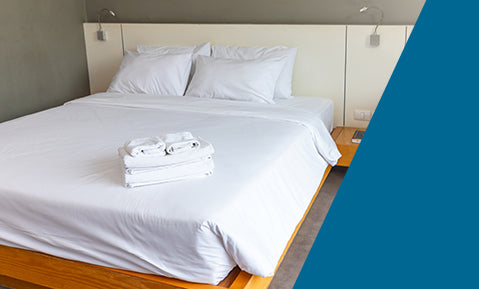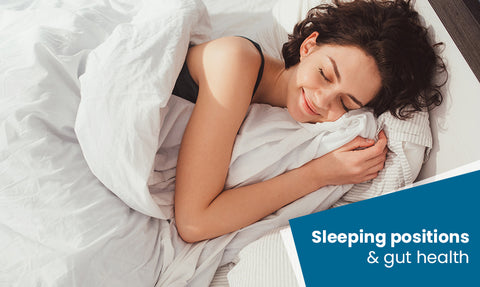
Sleep and calorie intake go hand in hand when it comes to maintaining a healthy lifestyle. When it comes to getting enough sleep, the amount and quality of sleep that you get will have a direct effect on your calorie intake.
The amount of calories your body uses while you sleep depends on several factors such as your age, weight, and activity level. Generally, an adult will burn anywhere from 40 to 80 calories per hour of sleep, according to the National Institutes of Health.
Sleep deprivation can lead to an increase in calorie intake, particularly in the form of unhealthy snacks. This is because when you’re sleep deprived, your body is looking for an energy boost, which can be found in high-calorie snacks which can lead to an unhealthy diet and weight gain.
On the other hand, getting enough sleep can help control your calorie intake. A good night’s sleep can help regulate your appetite, so that you don’t feel the urge to snack on unhealthy or sugary foods. When you’re well-rested, your body is more likely to make healthier food choices.
Getting enough sleep can also help you stay active. When you’re well-rested, you’re more likely to have the energy and motivation to stay active and exercise. Chances are that by religiously, doing this, you might end up burning a lot of irrelevant calories, at the same time, also maintain a healthier body weight.
Finally, getting enough sleep can help support your mental health. When you’re well-rested, you are able to absorb the activities faster and stay energized throughout the day. This causes less strain on your mind and reduces stress and anxiety.
What are calories?

Calories are measurements of energy released due to food intake. Eating food is of vital importance as it breaks down to form energy. This energy is used to regulate our day to day activities. Whenever we deprive ourselves from food for long, we feel a lack of energy, stress and weakness. The amount of calories needed for our body to perform various activities throughout the day is somewhere between 1600 to 2000 for women and 2500 to 2800 for men though the required measurement varies due to various factors.
There is a strong link between sleep and food. While we sleep our body continues to burn calories due to the subconscious activities and so it is very important to keep your calories filled for the nocturnal hours.
When you’re asleep, your body is still working hard at work. Not only is your brain processing the day’s events and preparing for the next day, but your body is also using calories. You may not be aware of it, but your body uses calories while you sleep to do everything from regulating your temperature to restoring muscle and tissue.
Uses of Calories in our body

The human body relies on calories for energy to sustain its basic functions and to perform physical activities. Calories are units of energy that are found in the food and beverages we consume. The body uses these calories for metabolism, the process of breaking down the food we eat for energy and for other bodily functions.
Calories are used by the body for a variety of purposes. The most basic form of energy that the body uses for its needs is called basal metabolic rate (BMR). This is the amount of energy the body needs to perform basic functions such as breathing, circulating blood, and maintaining body temperature.
In addition to BMR, the body also uses calories to fuel physical activity. During physical activity, the body burns calories to produce energy. Depending on the intensity of the activity, the body can burn anywhere from a few to several hundred calories per hour.
The body also uses calories to store energy. When a person eats more calories than they need to fuel their activities, the excess calories are turned into fat and stored in the body as a way to provide energy in the future.
Finally, the body uses calories to break down and absorb the nutrients and vitamins found in food. During digestion, the body breaks down the food into smaller bits which goes through a process of breakdown to release energy.
It is interesting to know the various factors that determine the calories intake

- Basal Metabolic Rate (BMR): Your BMR is the number of calories your body naturally burns in a day just to maintain normal body functions. It accounts for about 60-70% of the calories you burn in a day. It is determined by your age, height, weight, and gender. As you age, your BMR tends to decrease, meaning you naturally burn fewer calories in a day.
- Activity Level: The number of calories burned is largely determined by how active you are throughout the day.
- Age: Metabolic rate, or the rate at which the body burns calories, decreases with age.
- Gender: Men tend to burn more calories than women, simply because they have more muscle mass. Muscle tissue is more metabolically active than fat, meaning it burns more calories even when at rest.
- Body Size: People with larger body sizes require more calories than people with smaller body sizes.
- Genetics: Genetics can determine how quickly the body metabolizes food and burns calories.
- Stress Level: Stress can affect metabolism and cause the body to burn fewer calories.
- Diet: Eating a balanced diet and limiting unhealthy foods can help regulate calorie intake.
- Hormonal balance: The amount of calories dependency varies in men and women due to different hormonal structures. Not only on gender basis, can the level of hormones be different in two different males or females.
- Macronutrient balance: Macronutrient balance means the nutrient which is needed in excessive amounts than other nutrients like fat, carbohydrate, protein, vitamins. A balanced concentration of macro nutrients is important to keep you healthy and fit.
- Food intake frequency: The amount of food determines the availability of calories in your body. Excess eating means more calories you accumulate. Excess food can often lead to obesity.
How to Calculate Calorie Burn
The amount of calorie burn depends on your metabolism. Metabolism represents the process by which the body converts food into energy. The Basal Metabolic Rate determines the number of calories an individual burns while active or at rest.
To calculate calorie burn while sleeping you need to turn toward a calorimeter or have to get an approximate idea through your Basal Metabolism Rate by following Harris Benedict Equation
For men BMR = 66.5 + (13.8x weight in Kg) + (5x height in cm) – 6.8 x age in years)
For Female BMR = 655 + (9.6 x weight in Kg) + (1.8 x height in cm) – 4.7 x age in years)
There is simple formula to calculate Calorie burn while doing activities
Calorie Burned = Time Spent Exercising x (Metabolic Equivalent of Task (METs) x Your Weight in Kilograms) / 60
For example, for a 30-minute exercise with a MET of 8 and a weight of 75 kg:
Calorie Burned = 30 x (8 x 75) / 60
Calorie Burned = 600 / 60
Calorie Burned = 10 calories
Metabolic Equivalent to Task (METs) can be defined as the amount of energy (kcal) a person requires to perform a task. Sitting ideally is equivalent to 1 MET
Benefits of restrictive calorie intake

Calorie restriction, or CR, has been a popular method of weight loss and overall health improvement for many years. But what exactly is calorie restriction, and what are its benefits?
Calorie restriction is simply the practice of limiting your intake of calories, usually to a certain percentage below your recommended daily caloric intake. This can be done through a variety of means, such as eating fewer foods, eating smaller portions, or avoiding certain foods altogether. While the exact caloric restrictions vary from person to person, the goal is the same: to consume fewer calories than your body needs, with the hopes of losing weight, improving health, and slowing down the aging process.
So, what are the benefits of calorie restriction? The most significant benefit is weight loss. When you consume fewer calories than you burn, your body is forced to break down fat stores, resulting in weight loss. Additionally, CR has been linked to numerous other health benefits. Studies have shown that CR can reduce inflammation and improve metabolic health, as well as reduce the risk of chronic diseases such as diabetes, heart disease, and cancer.
CR can also help reduce the rate of aging, extend life expectancy and delay the onset of age-related diseases.
Excess calorie burn is a term used to describe any activity that causes your body to burn more calories than it normally would. This can be achieved through physical activity, diet, and lifestyle changes. Here are a few ways to increase your calorie burn and get into shape:

- Increase Physical Activity: Increasing your physical activity is one of the most effective ways to burn extra calories. Try adding a few extra minutes of exercise each day or making a regular exercise routine. If you can’t find the time to fit in an extra workout, try doing activities like walking or biking instead of driving. For a 77 kg person, standing burns more calories than sitting (approximately 186 as compared to 139 calories). Similarly waking can cause more calorie burn than standing (324 as compared to 186).
- Eat a Balanced Diet: Eating a balanced diet is key to burning extra calories. Make sure to include a variety of healthy foods, such as fruits and vegetables, whole grains, lean proteins, and healthy fats. Avoid processed and sugary foods, as these don’t provide any nutritional value and can lead to weight gain.
- Get Enough Sleep: Getting enough sleep is important for your overall health, and it can also help your body burn more calories. Aim for seven to eight hours of sleep each night to ensure your body has enough energy to burn throughout the day.
- Drink Plenty of Water: Drinking plenty of water can increase up to 100 extra calories burnt. Keeping your body hydrated is a blessing for the other body system as well.
- Eat smaller and frequent meals: eating smaller meals frequently can trigger your intestine to digest the food which causes your calories to burn away. Eating heavy meals causes strain on your digestive system which slowly keeps processing the food throughout the day.

When you think of calorie burning, you may imagine intense workouts and long runs. However, your body continues burning calories even while you sleep. Understanding how your body uses calories while you sleep can help you better understands how you can manage your weight and overall health.












